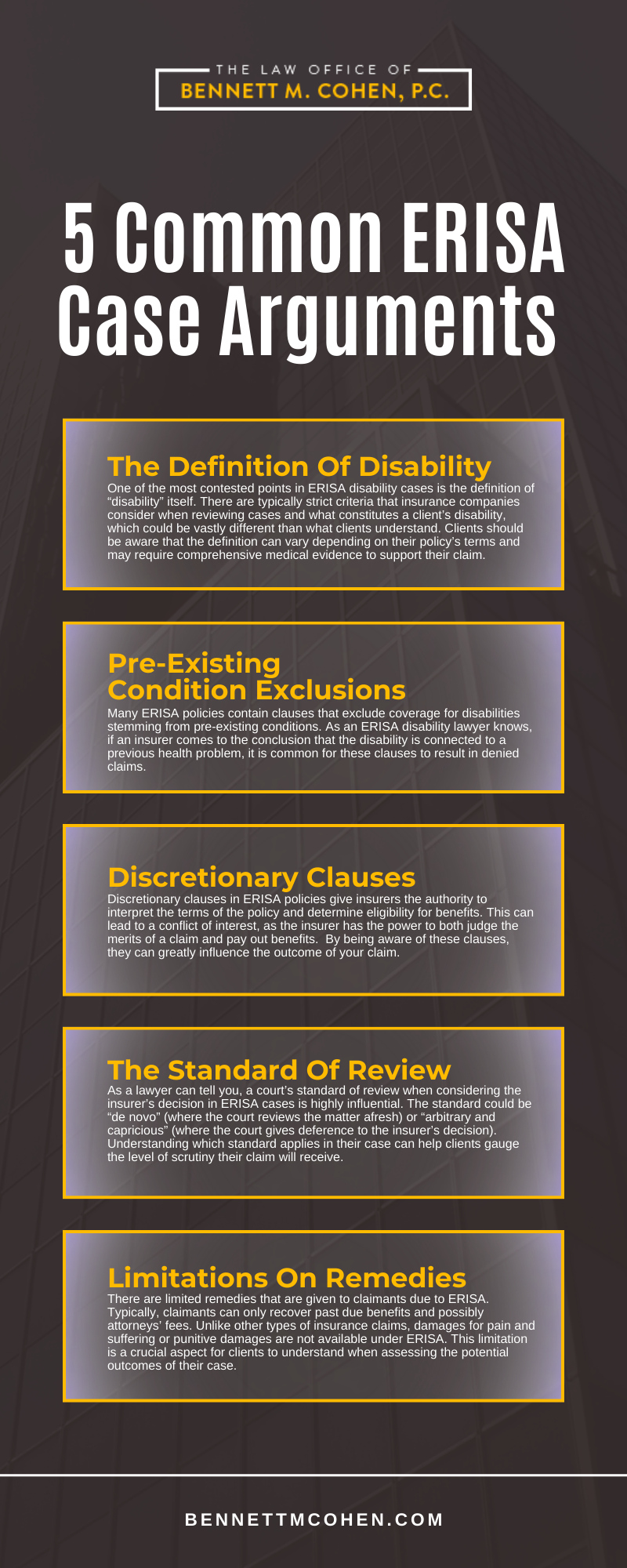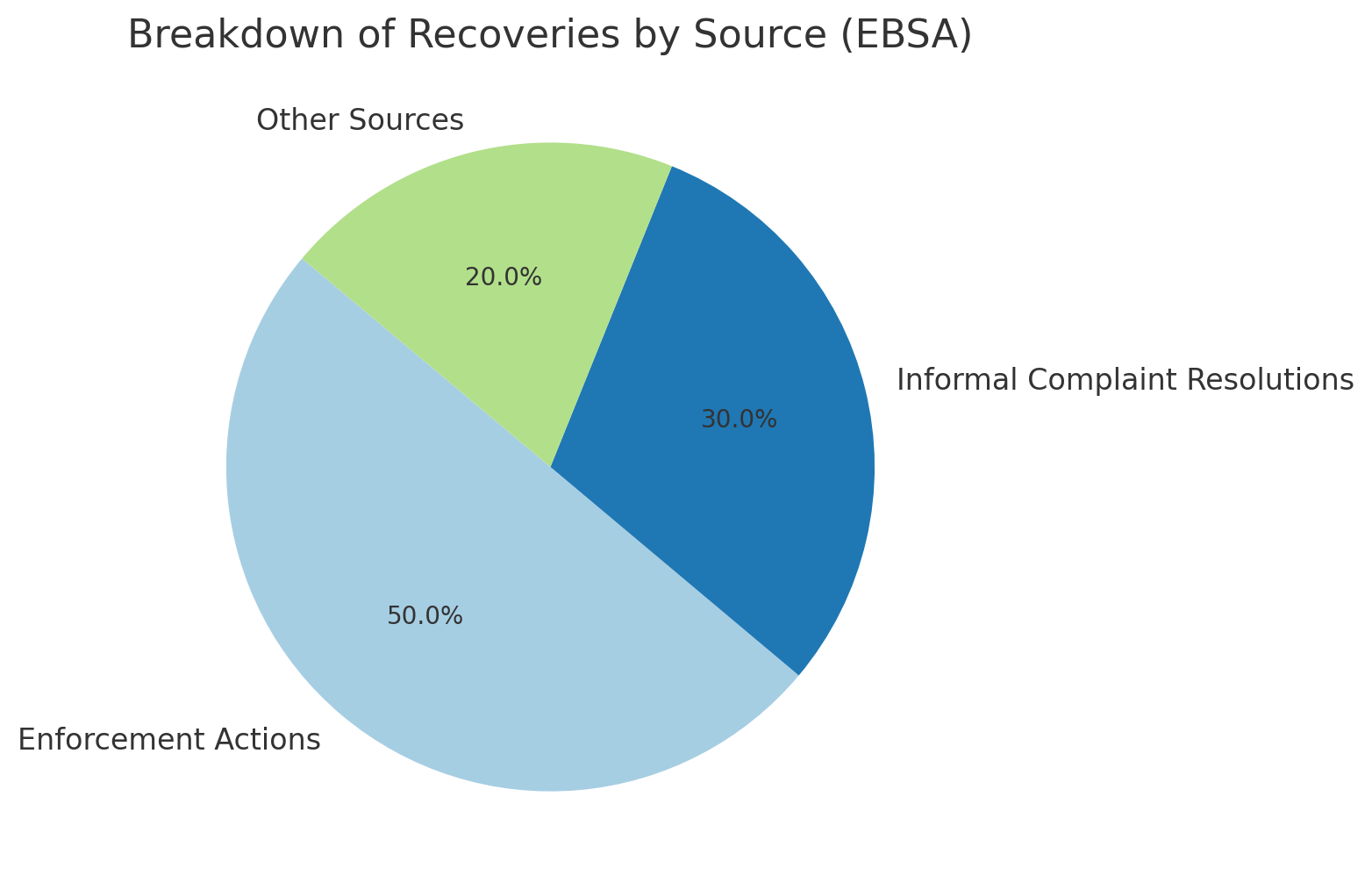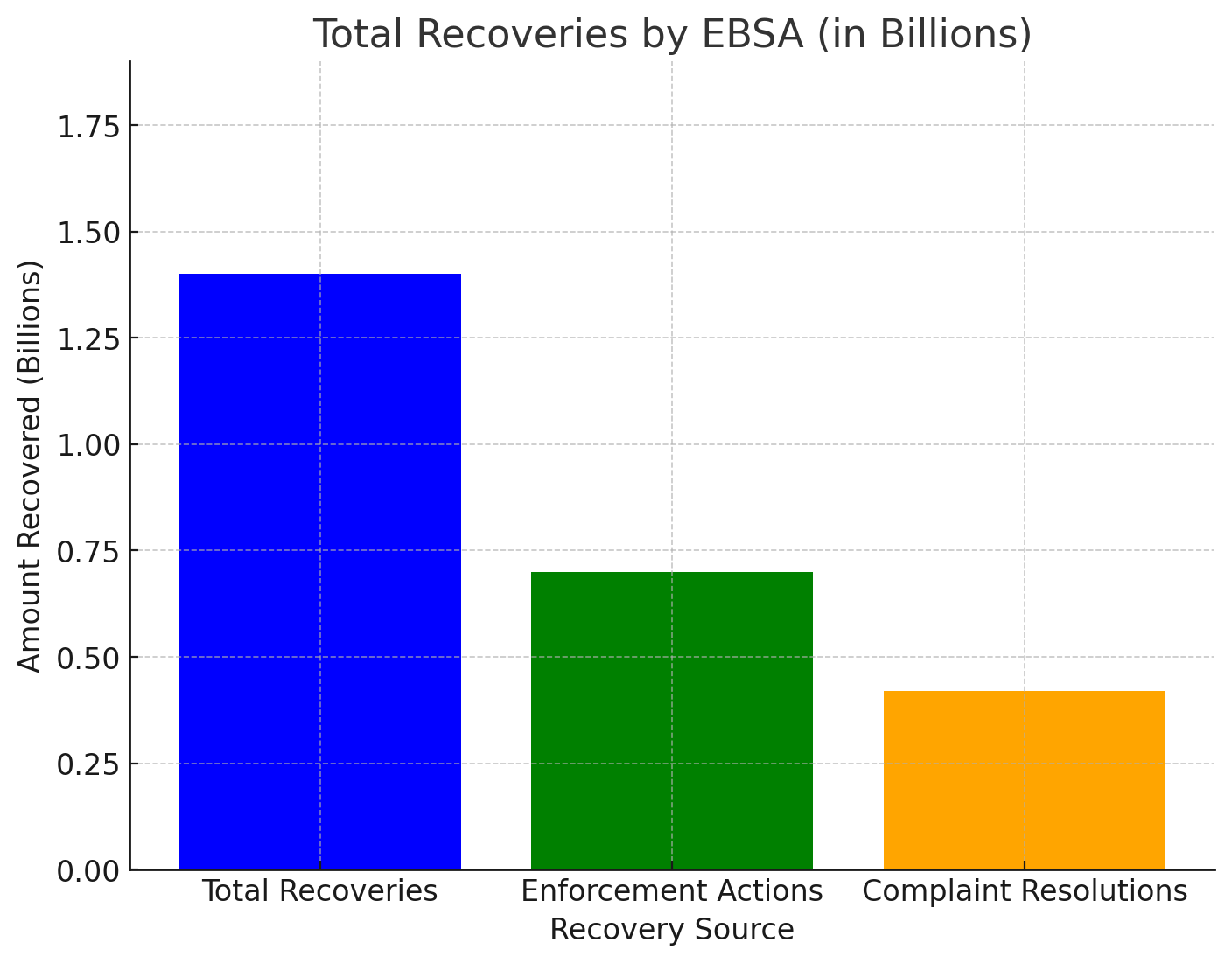ERISA Disability Lawyer San Francisco, CA
Professional Legal Assistance With Your ERISA Claim
If you’ve had issues claiming benefits under ERISA, our San Francisco, CA ERISA disability lawyer can help you move forward. When filing disability claims under ERISA, it’s important to understand the claims process and how ERISA relates to your policy. While the administrative process may seem complicated, our lawyer provides professional knowledge and experience that can make all the difference in your case. We never give less than 100 percent effort. Contact The Law Office of Bennett M. Cohen today to find out how we can help with disability claims under ERISA.
Table Of Contents
- Professional Legal Assistance With Your ERISA Claim
- What You Need To Know About ERISA Disability Claims
- 5 Common ERISA Case Arguments
- San Francisco ERISA Disability Infographic
- San Francisco ERISA Disability Statistics
- ERISA Disability FAQs
- The Law Office of Bennett M. Cohen
- Contact Our Lawyer Today
Understanding ERISA
The Employee Retirement Income Security Act of 1974, or ERISA, is a federal law that regulates minimum standards for voluntarily established employee benefits, retirement, health, and disability plans in the private sector. It requires plans to provide detailed information about benefits, funding, and cost of the plan, provides an avenue to file appeals and grievances for denied or undervalued benefits, and gives participants the right to file a lawsuit for benefits or breach of duty.
As a federal law, ERISA supersedes state and local regulations if your employer’s benefits plan is under ERISA. This means that you must file an appeal through the process set out by ERISA before filing any lawsuits. Enlist the aid of our San Francisco ERISA disability lawyer when filing an appeal for benefits. We can counsel you on the best course of action, gather evidence, comply with all ERISA policies, and craft the best possible appeal for you and your claim.
Filing Claims Under ERISA
The claims process under ERISA involves three steps: the initial claim, appeal, and filing a lawsuit. After you submit your initial claim to the insurance company, they must come to a decision within 45 days, though they can extend this period if necessary. If your claim is denied, you have the right to appeal this decision. You must exhaust all administrative avenues within your plan before filing a lawsuit. If the appeal is denied, you can file a lawsuit in federal court. Under ERISA, new evidence is typically not allowed in these lawsuits, which is why it is vital to fully present all evidence during the claim and appeal processes.
How Our ERISA Disability Lawyer Can Help You
In attempting to file a successful claim, it’s important to have all documents in order, compile sufficient evidence, meet all deadlines, and adhere to the administrative procedures and processes laid out under ERISA. This can be a difficult task, especially when dealing with a disability.
Our lawyer will make sure that every box is checked, and that you are given the best representation possible in all filings, negotiations, and, if necessary, court appearances. At The Law Office of Bennett M. Cohen, we are here to fight for you and your claim; contact us today for a consultation on how we can help you with your disability claim under ERISA.
What You Need To Know About ERISA Disability Claims
These claims can be hard to figure out. Our experienced ERISA disability lawyer understands the challenges that claimants face. The process of filing and appealing ERISA disability claims requires not only a deep understanding of the law, but also an ability to strategically navigate through the procedural nuances that are unique to these types of claims.
Understanding ERISA And Its Impact On Disability Claims
ERISA is a federal law that sets minimum standards for most voluntarily established pension and health plans in private industry to provide protection for individuals in these plans. ERISA governs the process of disability claims so every step must be followed. This includes everything from the initial filing of a claim to the handling of denials and appeals. As ERISA disability lawyers, we have honed our skills and knowledge to effectively guide clients through this process.
The Role Of An ERISA Disability Lawyer In Your Claim
The benefits of partnering with our ERISA disability lawyer goes beyond just getting legal advice. We provide comprehensive support throughout the claim process. This involves gathering the necessary medical evidence, meticulously reviewing policy documents, and preparing a robust case to support your claim. We also handle all communications with the insurance company and make sure all deadlines and requirements are met. Our goal is to alleviate the stress and burden from your shoulders, allowing you to focus on your health and wellbeing.
The Challenges Of ERISA Disability Claims
When your claim is denied, it can make the ordeal even more stressful. Insurance companies often deny claims based on various reasons, ranging from lack of medical evidence to policy exclusions. This is where our experience as ERISA disability lawyers becomes invaluable. We have the experience to anticipate the tactics used by insurance companies and counter them effectively. Our team is experienced with appealing denied claims, and we’re committed to fighting for your rights and pursuing the benefits you deserve.
5 Common ERISA Case Arguments
It may be time to seek assistance from a San Francisco, CA ERISA disability lawyer if you have a legal matter that concerns ERISA (Employee Retirement Income Security Act). This federal law governs most disability insurance claims, presenting unique challenges and arguments that are frequently encountered, including the following:
- The Definition Of Disability: One of the most contested points in ERISA disability cases is the definition of “disability” itself. There are typically strict criteria that insurance companies consider when reviewing cases and what constitutes a client’s disability, which could be vastly different than what clients understand. Clients should be aware that the definition can vary depending on their policy’s terms and may require comprehensive medical evidence to support their claim.
- Pre-Existing Condition Exclusions: Many ERISA policies contain clauses that exclude coverage for disabilities stemming from pre-existing conditions. As an ERISA disability lawyer knows, if an insurer comes to the conclusion that the disability is connected to a previous health problem, it is common for these clauses to result in denied claims. It’s essential for clients to understand the specific terms of their policy’s pre-existing condition clause and how it might affect their claim.
- Discretionary Clauses: Discretionary clauses in ERISA policies give insurers the authority to interpret the terms of the policy and determine eligibility for benefits. This can lead to a conflict of interest, as the insurer has the power to both judge the merits of a claim and pay out benefits. By being aware of these clauses, they can greatly influence the outcome of your claim.
- The Standard Of Review: As our lawyer can tell you, a court’s standard of review when considering the insurer’s decision in ERISA cases is highly influential. The standard could be “de novo” (where the court reviews the matter afresh) or “arbitrary and capricious” (where the court gives deference to the insurer’s decision). Understanding which standard applies in their case can help clients gauge the level of scrutiny their claim will receive.
- Limitations On Remedies: There are limited remedies that are given to claimants due to ERISA. Typically, claimants can only recover past due benefits and possibly attorneys’ fees. Unlike other types of insurance claims, damages for pain and suffering or punitive damages are not available under ERISA.
San Francisco ERISA Disability Infographic
San Francisco ERISA Disability Statistics
According to statistics from the U.S. Department of Labor, the Employee Benefits Security Administration (EBSA) recovers approximately $1.4 billion in direct payment to plans, participants, and beneficiaries on an annual basis. More than half of those recoveries are the result of enforcement actions, and more than 30 percent came from informal complaint resolutions. The EBSA is responsible for upholding the integrity of the private employee benefit plan system under ERISA.
ERISA Disability FAQs
Our experienced legal team understands the challenges individuals face when seeking disability benefits. Here, we address common concerns and provide clarity on key aspects of ERISA disability law.
What Types Of Disabilities Are Covered Under ERISA?
Under ERISA, a wide range of disabilities can qualify for benefits, including physical injuries, chronic illnesses, mental health conditions, and cognitive impairments. Whether your disability is temporary or permanent, it may be eligible for coverage under ERISA if it prevents you from performing your job duties. Our legal team can assess your situation and determine if your disability meets the criteria for benefits.
How Do I Qualify For Disability Benefits Under ERISA?
To qualify for disability benefits under ERISA, you must meet certain eligibility criteria outlined by your employer’s insurance plan. Typically, this involves demonstrating that your disability prevents you from engaging in substantial gainful activity and that you are under the care of a qualified medical professional. Our team at The Law Office of Bennett M. Cohen can help you navigate the application process, gather necessary documentation, and advocate for your right to receive the benefits you deserve.
What Is The Difference Between Short-term And Long-term Disability Benefits Under ERISA?
Short-term disability benefits provide income replacement for a temporary disability, usually for a period of up to six months. Long-term disability benefits, on the other hand, are designed to provide ongoing support for disabilities expected to last a year or longer, or even for the rest of your life. When planning your financial security, it’s critical to understand the distinctions between these two types of benefits. Our firm can help you understand what you need to know about short-term and long-term disability claims to maximize your chances of a successful outcome.
Can I Appeal A Denial Of Disability Benefits Under ERISA?
Yes, if your disability claim is denied, you have the right to appeal the decision. The appeals process typically involves submitting additional evidence, attending hearings, and presenting arguments to support your claim. Having experienced legal representation can significantly strengthen your appeal and improve your chances of overturning the denial. Our team will meticulously review your case, identify any errors or inconsistencies, and craft a compelling appeal strategy tailored to your unique circumstances.
What Evidence Do I Need To Support My Disability Claim Under ERISA?
When filing a disability claim under ERISA, strong supporting evidence is essential to substantiate your disability and establish your eligibility for benefits. This may include medical records, diagnostic tests, physician statements, treatment histories, and any other documentation that demonstrates the severity and impact of your disability on your ability to work. To strengthen your claim and increase your chances at producing a favorable outcome, it’s important to work with a lawyer who can assist you in gathering and presenting the necessary evidence.
San Francisco ERISA Disability Lawyer
At The Law Office of Bennett M. Cohen, our San Francisco, CA ERISA disability lawyer frequently assists clients in navigating the complex rules governing disability benefits provided through employer-sponsored plans. The Employee Retirement Income Security Act (ERISA) sets strict guidelines for how disability claims must be handled, including deadlines, appeals, and litigation procedures. Understanding the key legal terms associated with ERISA disability claims is crucial for ensuring that our clients receive the benefits they deserve. Below, we define and explain at least five essential legal terms that we frequently encounter in ERISA disability cases.
ERISA (Employee Retirement Income Security Act Of 1974)
ERISA is a federal law that regulates employer-sponsored benefits, including disability insurance, to protect employees from unfair benefit denials and mismanagement.When our clients have long-term or short-term disability benefits through their employer, those benefits are typically governed by ERISA. This law sets the standards for how insurance companies and employers must handle claims and appeals. Unlike private insurance policies, ERISA claims are subject to strict deadlines, mandatory administrative appeals, and limited court review. Our role is to ensure that insurers follow ERISA regulations, properly evaluate claims, and uphold our clients’ rights throughout the process.
Administrative Exhaustion
Administrative exhaustion is the legal requirement that claimants must complete all internal appeals with the insurance company before they can file a lawsuit under ERISA.One of the most important aspects of ERISA disability law is that claimants must go through their insurer’s entire internal appeals process before taking their case to court. If a claimant files a lawsuit without completing all required appeals, the case may be dismissed. Our San Francisco ERISA disability lawyer helps our clients build the strongest possible administrative appeal, ensuring that all medical evidence and legal arguments are presented properly. This step is crucial because federal courts often limit their review to the evidence submitted during the administrative appeal process.
Arbitrary And Capricious Standard Of Review
A legal standard that courts use in ERISA cases to determine whether an insurance company’s denial of benefits was unreasonable or lacked a valid basis.One of the biggest challenges in ERISA disability lawsuits is the deferential standard of review that courts apply. If a disability plan gives the insurer discretionary authority, courts review the claim under the “arbitrary and capricious” standard, meaning they will only overturn a denial if it was completely unreasonable.
De Novo Review
A legal standard in which the court reviews an ERISA disability claim without giving any deference to the insurance company’s previous decision. In some ERISA disability cases, courts apply de novo review, which means they will evaluate the claim from the beginning, without considering the insurer’s prior decision. This is the preferred standard for claimants because it gives us the opportunity to present new evidence and argue the case without the burden of proving the insurer acted unreasonably.
Long-Term Disability (LTD) Benefits
Monthly payments provided under an ERISA-governed disability insurance policy for employees who are unable to work due to a serious medical condition. Many of our clients seek long-term disability (LTD) benefits after an injury or illness prevents them from working. LTD benefits typically replace a percentage of the claimant’s income, but insurance companies often dispute whether a claimant meets the plan’s definition of “disability.”
The Law Office of Bennett M. Cohen, San Francisco ERISA Disability Lawyer
1438 Market St, San Francisco, CA 94102
Contact Our Lawyer Today
At The Law Office of Bennett M. Cohen, we are committed to providing compassionate and comprehensive legal representation. If you’re facing challenges with your disability claim, don’t hesitate to contact our experienced San Francisco ERISA disability lawyer for personalized guidance and support. Let us advocate for your rights and help you secure the benefits you deserve.
Meet Bennett M. Cohen
San Francisco Personal Injury Attorney
Bennett M. Cohen brings over 30 years of litigation experience which includes representing plaintiffs against massive companies like the Shell Oil Company, Standard Insurance Company, and Metropolitan Life Insurance Company. Bennett M. Cohen brings an experienced and dynamic touch that separates himself from large law firms. He can oversee every aspect of your case, ensuring you receive specialized assistance.
Learn moreDon’t Leave Your Case To Chance
Ensure your case is in the hands of a seasoned professional that will fight for you




